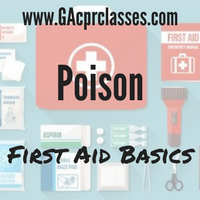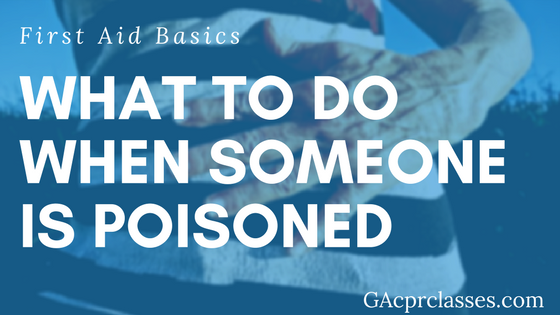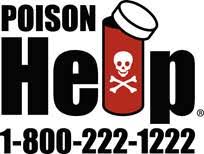First Aid Basics: What To Do When Someone Is Poisoned

[adinserter block=”2″]
[adinserter block=”3″]

Poison
When someone has been poisoned, a rescuer must act quickly in order to get help involved. Poisoning is one of the more serious things that can happen to a person. There are several things that cause poisoning, but they all exhibit that same overall qualities. Problems start with vomiting, drowsiness, trouble breathing, confusion, and possibly seizures. You may also be able to smell chemicals on the person’s breath or notice burns around their mouth. In the case of an overdose, you might see pills scattered or an empty bottle. Any state of unconsciousness, of course, is a definite medical emergency that requires immediate attention.
Common Causes
Poisoning can occur when a toxin is swallowed, is inhaled in through the mouth or nose, gets on the skin or in the eyes, or is injected under the skin through a bite or sting.
- Automobile Fluids (e.g., gasoline, antifreeze, windshield fluid)
- Cosmetics and Other Personal Care Products
- Household Cleaning Products (e.g., bleach, drain cleaners, dishwasher detergent)
- Over-the-counter or Prescription Medications (e.g., analgesics such as acetaminophen, cough and cold medicines, vitamins)
- Foreign Objects (e.g., toys, batteries)
- Paints or Paint Thinners (especially older homes where lead paint is more likely to be found)
- Pesticides (e.g., insecticides, weed killers, rodenticides)
- Plants
- Art Supplies or Office Supplies
- Alcohol
- Food
- Herbal Medicines
- Carbon Monoxide
[adinserter block=”2″]
[adinserter block=”3″]
What To Do When Someone Is Poisoned
Call 911 or your local emergency number immediately if the person is:
- Drowsy or unconscious
- Having difficulty breathing or has stopped breathing
- Uncontrollably restless or agitated
- Having seizures
- Known to have taken medications, or any other substance, intentionally or accidentally overdosed (in these situations the poisoning typically involves larger amounts, often along with alcohol).

- The person is stable and has no symptoms
- The person is going to be transported to the local emergency department
Try to have as much information as possible when calling for help. They will often ask the caller to describe the person’s symptoms, age, weight, other medications he or she is taking, and any information you have about the poison. Try to determine the amount ingested and how long since the person was exposed to it. If possible, have the pill bottle, medication package or other suspect container close so you can refer to its label when speaking with the poison control center.
Precautions To Take While Waiting For Help And The Victim Is Conscious:
- If Poison Was Swallowed: Remove anything remaining in the person’s mouth. If the suspected poison is a household cleaner or other chemical, read the container’s label and follow instructions for accidental poisoning.
- If Poison Is On The Skin: Remove any contaminated clothing using gloves. Rinse the skin for 15 to 20 minutes in a shower or with a hose.
- If Poison Is In The Eye: Gently flush the eye with cool or lukewarm water for 20 minutes or until help arrives.
- If The Poison Was Inhaled: Get the person into fresh air as soon as possible.
And If The Victim Goes Unconscious At Any Point:
- Make sure to position the person on their back, on a firm, flat surface. Always be careful of the head, neck, and spine while moving any unconscious victims. It is always preferable to not move a victim, but it is necessary sometimes to get them in a more favorable location or position to receive help.
- Listen and check to see if the person is breathing.
- If They Are Breathing Normal, stay with the victim and monitor for changes.
- If they begin to throw up, position the victim in the rescue position, on their side with bottom arm extended out to act as a cushion to support the head, neck , and spine. Also slightly move a leg to the front to help support the person’s weight.
- Never put your fingers in the mouth to try and remove any objects. Place the victim into the rescue position and pat the back to help remove any obstructions.
- If They Are NOT Breathing Or Gasping, CPR will be needed immediately.
- Start chest compressions by pushing in center of the chest. Push 2 inches deep for Adults and Children (1.5 inches on infants) and at a rate of 100-120 compressions per minute.
- Use an AED as soon as it becomes available.
- If They Are Breathing Normal, stay with the victim and monitor for changes.
Poison Considerations
- Try to not have the victim throw up unless instructed to do so by Poison Control or a doctor. Vomit already damages the esophagus in the first place and then brings back any other chemicals or poisons that can increase damages to the airway. It is recommended to drink a little milk to help balance the stomach or to go to the hospital to get their stomach pumped to remove the poison.
- Ipecac syrup is no longer recommended for poison emergencies. It is no longer available in drug stores and it is suggested to throw out any remaining supply of the syrup. It often does more harm than good.
- Medicine patches are a newer trend to keep an eye on in regards to children and poison. It is very easy for kids to think of them as stickers, so be sure to inspect the child carefully. Also check the roof of the mouth, where they often get stuck after a child tries to swallow a patch.
- If you suspect someone has been poisoned, do not hesitate to call for help. Do not wait for symptoms to develop. Poison control is available 24 hours a day by phone.
- Prevention is the number one way to help fight poison problems. Be aware of poisons in and around your home. Take steps to protect young children from toxic substances. Store all medicines, cleaners, cosmetics, and household chemicals out of reach of children, or in cabinets with childproof latches.
Disclaimer: There are ads and affiliate links within our posts. We earn a small commission if you do choose to use the links and they do not add any additional cost to you if you do use them. Products are recommended because they are useful and helpful, not because of the commission possibly earned. Only use the links if you believe they can help you or you are interested in learning more about an advertisement.

Proudly offering American Heart Association workplace CPR training classes in the Greater Atlanta area. 3 local offices, online and classroom options, and cards are issued at the time you complete training. ACLS, CPR, BLS, First Aid, and PALS classes are available.
[adinserter block=”2″]
[adinserter block=”3″]